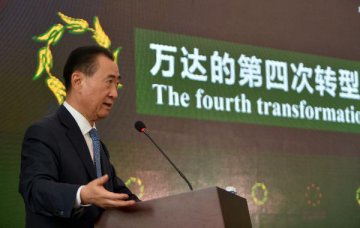WASHINGTON, July 15 (Xinhua) -- The path of the U.S. economy largely depends on developments involving COVID-19 as the country has failed to control the pandemic, a senior Federal Reserve official said on Wednesday.
"Despite the enormous sacrifices made by tens of millions of Americans, the country has still failed to control the virus," Patrick Harker, president of the Federal Reserve Bank of Philadelphia, said at a virtual event by the Center City Proprietors Association.
The number of COVID-19 cases in the United States topped 3.46 million as of Wednesday afternoon with more than 136,000 deaths, according to the Center for Systems Science and Engineering (CSSE) at Johns Hopkins University.
"A Fed president might like to think otherwise, but there is only so much policymakers can do right now to affect the economy. Our country's economic performance in a large part depends on what happens with COVID-19," Harker said.
"The projections I'm about to share with you, in other words, come with a huge caveat: They're constantly changing along with the path of the virus," he said, adding U.S. economic growth in 2020 could end up at around minus 6 percent, a much sharper recession than the country experienced during the 2008 financial crisis.
While White House officials have expressed optimism that the economy will rebound in the second half of the year, economists and public health experts have warned that a hasty reopening of the economy could trigger a second wave of infections, which could reverse the economic recovery.
Harker also noted that "even though we went into the COVID-19 crisis with a very strong economy, far too many Americans - disproportionately Americans of color - were not sharing in the country's prosperity."
The Fed official suggested that the next period of economic growth should be "strong and more inclusive than the last," urging policymakers to help transition low-wage workers into higher-paying jobs.
"Transitioning low-wage workers into higher-paying jobs not only helps companies themselves, insofar as they are tapping underutilized human capital, but it also helps redress structural inequities. Communities of color stand to benefit because they have for far too long and far too often been shut out of higher wage work," he said.




















Latest comments